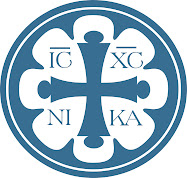I’ve been thinking about the push for “inclusion” I sense lately. By that I mean an embracing of other religious practices in modern Christianity (by modern I don’t mean philosophically or culturally but modern in the terms of 21st century). All of this seems to be done reflecting a desire to eliminate “hate” by focusing on what we have in common rather than areas where we are divergent. There is some merit to this idea that I think deserves consideration. We have seen through out history that the aggressive hate of others by Christians in the name of God has had significant damaging affect that I’m not sure we will ever be able to overcome. This hatred of differences has been displayed internally as well between Christians! Some of the most hurtful comments and treatment I have personally experienced has come from my “brothers and sisters in the faith.” Christ Himself warned against the dangers of standing in judgment of a someone. But…there is a difference between standing in judgment and exercising discernment.
It seems there is a movement in our culture of embracing not only others as people but also their belief system without any regard for it’s divergence from our own historical Christian faith. This has an air of nobility, but something isn’t quite right. At first I thought it was just my “fundamentalist background poisoning my love for others,” but as I’ve really prayed and thought about it I don’t think this is the case. Maybe an illustration would help.
I work with two great men. We have many things in common. To start with…our gender, our love for God, our esteem for God’s Word, our devotion to His Body. We also all like sports, chips and salsa, Braveheart, and spending days off with the family. One other thing we share in common is that we are all married…and that’s what got me thinking. With all of our “similarities” would it be okay for us to switch wives? I mean if we are all basically the same why would it matter? That’s when it hit me…because it’s not our similarities that makes us individuals, it is our differences! Now I’m not promoting a lifestyle of rugged individualism, I hold very deeply the concept of community and God’s design of it, but if we only focus on our similarities and never acknowledge our differences can real relationship even occur? My wife and I are covenanted to each other specifically and only. That was intentional, that is what we wanted. I chose her, she chose me. She didn’t choose “a man”, she chose me (which I am very happy about by the way). I’m not interchangeable with others no matter how similar they may be.
This has shed new light on Peter’s words
9But you are A CHOSEN RACE, A royal PRIESTHOOD, A HOLY NATION, A PEOPLE FOR God's OWN POSSESSION, so that you may proclaim the excellencies of Him who has called you out of darkness into His marvelous light; 10for you once were NOT A PEOPLE, but now you are THE PEOPLE OF GOD; you had NOT RECEIVED MERCY, but now you have RECEIVED MERCY.
The words here are incredibly profound! What strikes me is Peter’s “exclusive” language! A “chosen race”, “God’s own possession”, even that you once “were not at people”. Like it or not, there ARE differences that are significant. Is that uncomfortable…yes! Does it lead to more questions…yes! But it seems apparent from my life personally, and the witness of Scripture that there are differences that we MUST recognize. This is not a license for disrespect, but it is a call to hold on to ourselves as we step into another’s world.
More later…
Thursday, November 02, 2006
What’s more important? (Part 1)
Posted by Ted Ancelet at 2:33 PM
Subscribe to:
Post Comments (Atom)



5 comments:
I'm having trouble understanding your question. Should we include everyone so not to "offend"? Or ask for the secret code word before opening the door? I think we can look at Jesus' example, if I understand correctly. He included (accepted) everyone except for those he new had turn their hearts against him. He let people be who they were, but was also very intent on telling them who they could be. Our differences exist and only time will expose them. Then we have a choice to make. Do I work through it, or work around it? Working through it will always expose you to yourself, helping you grow in the process.
Thanks for the post...i see my lack of clarity :-)
Where I'm coming from is from a theological/philosophical perspective versus a social/salvation perspective. My question is not so much one of acceptance as it is inclusion. Jesus accepted people in their broken state...BUT inclusion in the kingdom does have stipulations (John 14:6). It’s not the we have to be “theologically correct” to enter in (obviously none of us are when we are “born again”), but that can be stretched too far and become a removal of absolutes. While I hold to an understanding that objectivity is an illusion, I think that doesn’t remove absolutes from our lives…just forces us to humbly acknowledge that we are all in process.
Unpack for me what you meant with the "secret code word" comment (sarcasm duly noted).
Unpacking....I didn't mean any sarcasm, I was giving you both ends. Either/or. IE; some people will say your not saved unless you speak in tongues, therefore they are "excluding" you from their circles. Others will say "as long as you say you believe in some god, your ok with us." Including everyone while living a life of relatives, yes and no as opposed to yes OR no. The yes or no thinking can also go too far. I understand now what your saying. For myself, I agree, there are absolutes, but there's a process, like you said, on getting there. It looks different for everyone based on what we've been taught our whole lives and any significant events that may have taken place along the way. I think those are the differences your speaking of? I've personally been taking inventory of all the big emotional events that have taken place in my life and am trying to see how they've affected what I believe about who God is.
After reading all this again, I'm still having a hard time with what it is exactly that's bugging you. You stated that you realized it was our differences that made us individual, not our similarities. Individual means existing as a distinct entity. We're differnt no matter what we believe.
Thanks again Jason for your comments, they help to clarify things in my own head.
Maybe a better question is what is a "Christian"?
Post a Comment